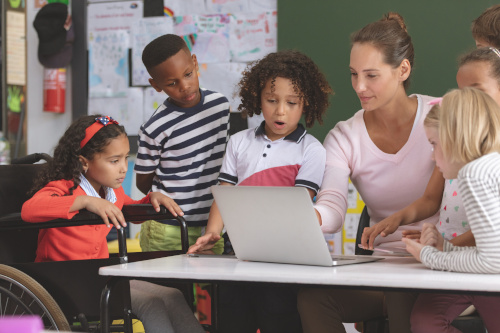As a former molecular biologist turned college and 7-12 educator, I have taught laboratory science classes for the past 3 decades. I’ve seen a lot of changes in science education (especially digital content) over the last 30 years, but one challenge has remained the same: students have to learn laboratory skills.
As a science department chair at a high-performing public high school in Arizona, I can attest firsthand to the stress this component of science education places on young, new science teachers who may not have the benefit of being a trained research scientist in college and who feel intimidated to lead an entire class of 30+ adolescents through a lab that they must by themselves prepare everything for.
This insecurity can lead to many 7-12 science teachers opting not to complete many hands-on labs with their students either because they lack the resources or the confidence to do so. Add to this the fact that districts often emphasize and require science teachers to host and participate in school and district Science Fairs, and it is no wonder that good science teachers are hard to come by.
While digital science content is abundantly available, digital science content that supports and focuses on lab skills is more difficult to come by. Here are my 3 favorite digital resources that can help support ALL science teachers teaching science lab skills:
1. Discovery Education’s Pivot Interactives: This is my number one super recommendation! Whether it is supporting junior high, high school, or undergraduate college labs in physics, chemistry, biology or earth science, Pivot offers lab experiences that are real (not cartoons) and truly interactive where students can analyze real data (depicted through videos) and even select their own data to collect. The auto-graded questions embedded along with the open-ended free response questions allow for immediate feedback to students about what they are doing and if they are on the right track or not (something that even in-person labs do not have.) The scientist-generated questions are all designed to not only provide verification that students are learning what they are supposed to be learning, but also help model how a lab should be executed for newer science teachers who may not already be comfortable doing so on their own.
- Are substitutes the answer to the teacher shortage? - June 13, 2023
- Preparing for ransomware attacks begins with education - June 13, 2023
- How to use UDL-inspired technology to reengage students - June 12, 2023

